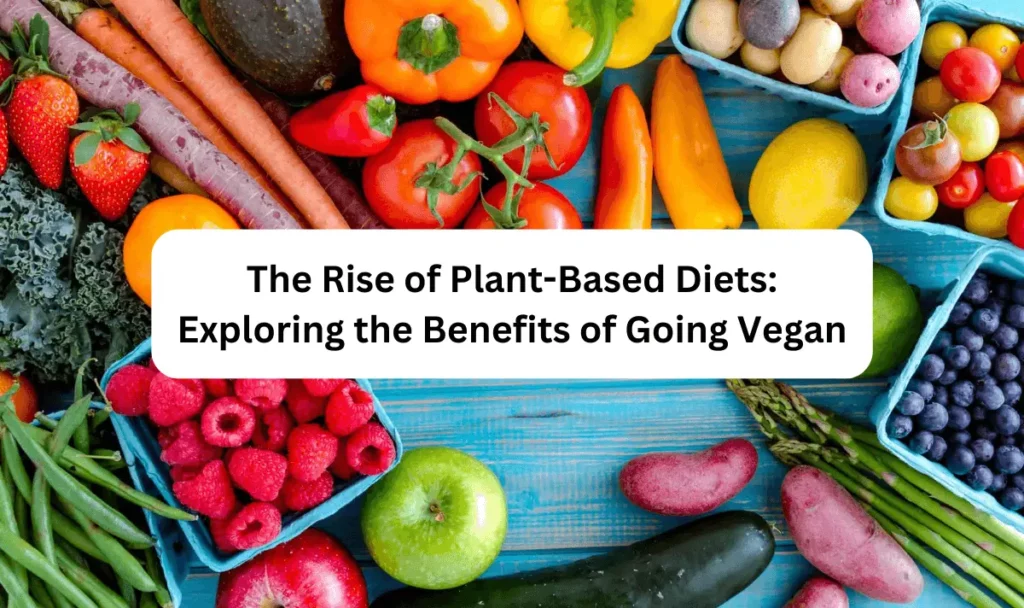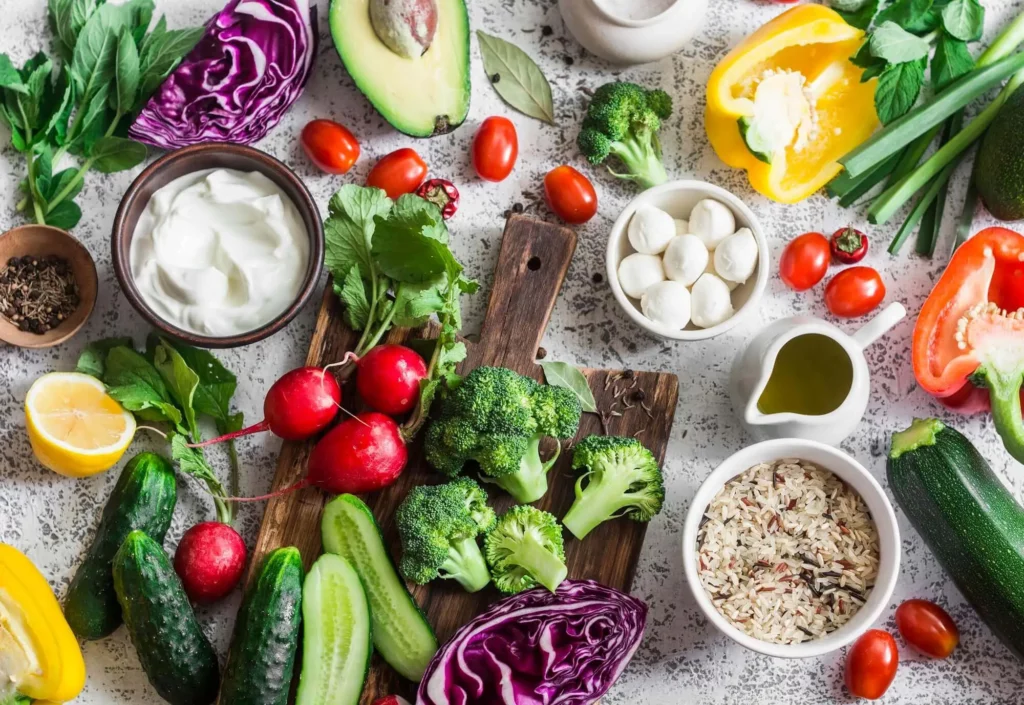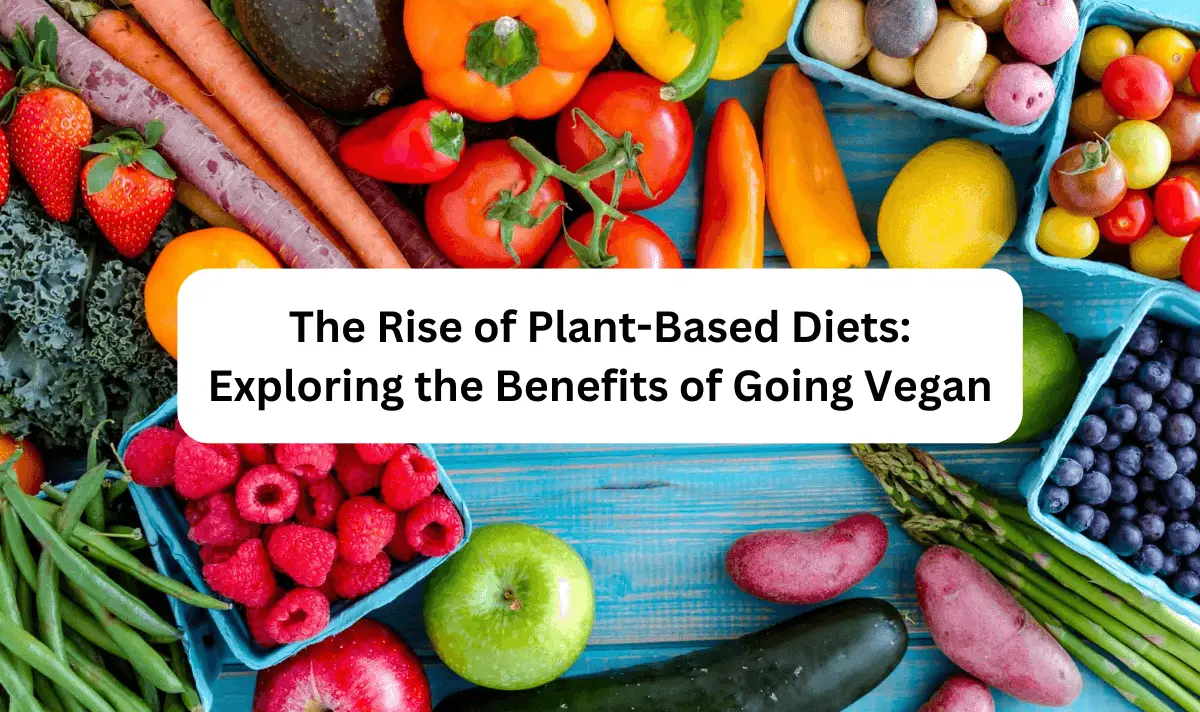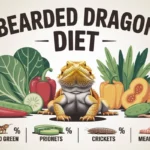
Introduction
In recent years, there has been a remarkable rise in the popularity of plant-based diets. People all around the world are embracing veganism as a way of life, and it’s not just a passing trend. The decision to adopt a plant-based diet goes beyond personal health and extends to the well-being of the planet and the welfare of animals. This article aims to delve into the benefits of going vegan, exploring the positive impact it can have on our health, the environment, and the ethical treatment of animals.
May You also like this: The Art of Restful Sleep – Tips for a Good Night’s Rest
Content
The Rise of Plant-Based Diets: Exploring the Benefits of Going Vegan
Transitioning to a plant-based diet offers numerous benefits, encompassing various aspects of our lives. Let’s take a closer look at the advantages of embracing veganism:
Improved Heart Health

One of the most significant benefits of adopting a plant-based diet is the positive impact it has on heart health. Plant-based foods are generally low in saturated fats and cholesterol, reducing the risk of cardiovascular diseases. Additionally, fruits, vegetables, and whole grains are rich in fiber, which aids in lowering cholesterol levels and maintaining a healthy heart.
Weight Management
Many individuals turn to veganism as a means of managing their weight effectively. Plant-based diets are typically lower in calorie density, allowing individuals to consume satisfying portions while still maintaining a calorie deficit. Additionally, the abundance of fiber in plant-based foods helps promote feelings of fullness, reducing the likelihood of overeating.
Environmental Sustainability
The rise of plant-based diets aligns with the growing concern for environmental sustainability. Animal agriculture is a significant contributor to greenhouse gas emissions, deforestation, and water pollution. By adopting a vegan lifestyle, individuals reduce their carbon footprint, conserve water resources, and mitigate the destruction of natural habitats.
Enhanced Nutritional Intake

Contrary to common misconceptions, plant-based diets can provide all the essential nutrients needed for optimal health. With careful planning and variety in food choices, vegans can obtain an abundant supply of vitamins, minerals, and antioxidants. Fruits, vegetables, legumes, whole grains, nuts, and seeds offer a wide array of nutrients that support overall well-being.
Ethical Treatment of Animals
For many people, the ethical treatment of animals is a driving force behind their decision to go vegan. Animal agriculture often involves practices that cause immense suffering to animals. By adopting a plant-based diet, individuals actively participate in reducing animal cruelty and promoting a compassionate lifestyle.
Increased Energy Levels
Another benefit of going vegan is the potential increase in energy levels. Plant-based foods are rich in complex carbohydrates, which are the body’s primary source of fuel. By consuming a diet abundant in whole grains, fruits, and vegetables, individuals can experience improved energy levels, increased vitality, and enhanced overall well-being.
Lower Risk of Chronic Diseases

Numerous studies have indicated that plant-based diets can significantly reduce the risk of chronic diseases. The consumption of fruits and vegetables has been linked to a decreased likelihood of developing conditions such as diabetes, certain types of cancers, and hypertension. The fiber and antioxidants present in plant-based foods play a crucial role in maintaining optimal health and preventing the onset of chronic illnesses.
Conclusion
The rise of plant-based diets signifies a shift towards a more sustainable, compassionate, and healthier way of living. By embracing veganism, individuals can experience improved heart health, better weight management, contribute to environmental sustainability, enjoy enhanced nutritional intake, promote the ethical treatment of animals, and reduce the risk of chronic diseases. Whether motivated by personal health or global impact, adopting a plant-based diet can be a transformative journey towards a better future.
What is a plant-based diet?
A plant-based diet focuses on consuming foods derived from plants, including fruits, vegetables, legumes, whole grains, nuts, and seeds. It excludes or minimizes the consumption of animal products such as meat, dairy, eggs, and honey.
Is it possible to meet all nutritional requirements on a plant-based diet?
Yes, it is entirely possible to meet all nutritional requirements on a plant-based diet. With proper planning and a diverse range of plant-based foods, individuals can obtain all the necessary nutrients for optimal health, including protein, iron, calcium, and vitamins.
Can a plant-based diet provide enough protein?
Absolutely! While animal products are often considered the primary source of protein, plant-based foods can also provide an ample amount of this essential nutrient. Legumes, tofu, tempeh, seitan, quinoa, and certain grains are excellent plant-based protein sources.
Are plant-based diets suitable for children and pregnant women?
Plant-based diets can be suitable for people of all ages, including children and pregnant women. However, it is crucial to ensure that all nutritional needs are met during these stages of life. Consulting with a healthcare professional or a registered dietitian can provide personalized guidance and ensure proper nutrient intake.
Can a plant-based diet help with weight loss?
Yes, a plant-based diet can be effective for weight loss. By focusing on whole, unprocessed plant foods and being mindful of portion sizes, individuals can create a calorie deficit and promote weight loss. Additionally, the high fiber content of plant-based foods helps promote satiety, aiding in weight management.
How can I transition to a plant-based diet?
Transitioning to a plant-based diet can be done gradually. Start by incorporating more plant-based meals into your routine and gradually reducing the consumption of animal products. Experiment with different recipes, explore new flavors, and seek support from online communities or local vegan groups to make the transition smoother.

Kylie Davidson is a health blogger and the founder of her own blog about fitness. She has been blogging for three years now and loves to share what she learns with others. Kylie enjoys reading, cooking, and staying active outdoors.







